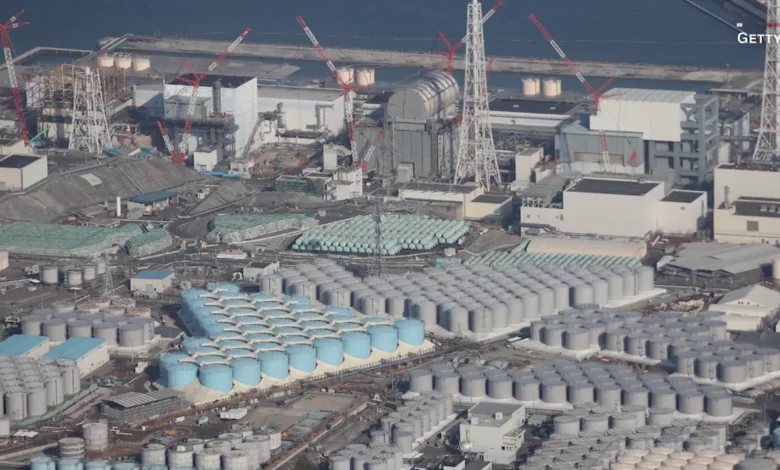
“The just international community must not sit and watch the evil, anti-humanitarian and belligerent action by the corrupt force that is trying to disrupt humanity’s home of the blue planet – and must unite to thoroughly stop and destroy them,” the country’s Land and Environment Protection Department said.
Its statement, reported by state media outlet KCNA on Sunday, comes after the UN’s International Atomic Energy Agency (IAEA) said last week that Tokyo’s plan was safe and in line with international standards for environmental safety.
Japan plans to release the wastewater sometime this summer.
Pyongyang’s statement is the latest in a series of concerns voiced by neighboring countries like South Korea, China and the Pacific Islands – all of which have raised fears about potential harm to the environment and public health.
Chinese custom authorities on Friday announced that a ban on food imports from 10 Japanese prefectures including Fukushima would remain in place and that it would strengthen inspections to monitor for “radioactive substances, to ensure the safety of Japanese food imports to China.”
The UN’s approval has done little to reassure fishermen and residents still affected by the 2011 disaster.
Speaking to CNN in a recent interview in Tokyo, IAEA Director General Rafael Grossi said he had met with Japanese fishing groups and local mayors and acknowledged their fears.
“My disposition … is one of listening, and explaining in a way that addresses all these concerns they have,” he said. “When one visits Fukushima, it is quite impressive, I will even say ominous, to look at all these tanks, more than a million tons of water that contains radionuclides – imagining that this is going to be discharged into the ocean. So all sorts of fears kick in, and one has to take them seriously, to address and to explain.”
The IAEA has said that there was no better option to deal with the massive buildup of wastewater collected since the disaster.
“We have been looking at this basic policy for more than two years. We have been assessing it against … the most stringent standards that exist,” Grossi said. “And we are quite certain of what we are saying, and the scheme we have proposed.”
The 2011 disaster caused the plant’s reactor cores to overheat and contaminate water within the facility with highly radioactive material.
Since then, new water has been pumped in to cool fuel debris in the reactors. Ground and rainwater have also leaked in, creating more radioactive wastewater now measuring 1.32 million metric tons – enough to fill more than 500 Olympic-sized swimming pools.
‘Necessary move’
Japanese authorities have maintained that the release is necessary as space runs out to contain the contaminated material – and the move would allow the full decommissioning of the Fukushima nuclear plant.
International scientists have expressed concern to CNN, saying that there is insufficient evidence of long-term safety and arguing that the release could cause tritium – a radioactive hydrogen isotope that cannot be removed from the wastewater – to gradually build up in marine ecosystems and food chains, a process called bioaccumulation.




